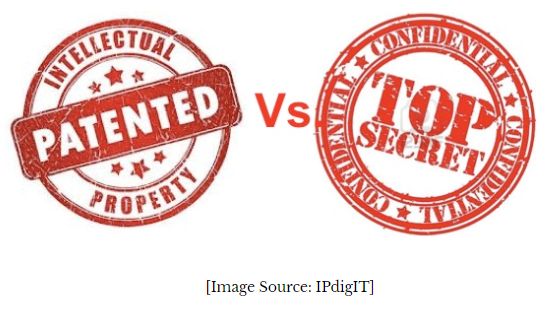In a important decision the Delhi High Court stated that the patent and trade secret cannot co-exist. This decision was very important in the light of protecting the same invention under patent and trademark. The case is of Prof. Dr. Cluadio De Simone & Anr. v. Actial Farmaceutica SRL. & Ors., provides a better clarity on the interplay of trade secret and patent protection.
Brief
The facts of the case are interesting. The plaintiff was an inventor for a US patent. The patent, a De Simone formulation which is useful for dietary and pharmaceutical indications, expired in 2015. This patent was not registered in India. The patent dealt into the bacterial formulation consisting of strain selection and blending ratio which the plaintiff contended that it was maintained as trade secret. For effective marketing in India and having no patent as such, Plaintiff No.1 entered into a patent license agreement with Defendant No. 3 as a know-how agreement, which was to become effective upon the expiration of the Patent License Agreement. This was to ensure that Defendant No. 3 could continue to manufacture the formulation even after the patent expired.

Gradually, the agreement was terminated after disagreement with plaintiff for using cheaper ingredients. Eventually, since knowing the effective consideration for the drug, the defendant No. 4 made the counterfeit drug but they could not make the complete copy of the drug since they were not able to find exact bacteria. After the defendant publicise the new formulation, plaintiff sought injunction from linking it to De Simone Formulation.
Analysis
The case delves into a question of getting into property rights for a non-patented product only by entering into a know-how agreement with a third party and claiming confidentiality. The court does answer in negative and rejected the contention of providing protection for unpatented product under trade secret. The know-how agreement that the plaintiff has sought for without having any such patent protection cannot be provided any such protection reiterating the fact that Indian laws does not equate trade secret with the property rights.
The plaintiff does not have any such patent on their product and even the patent has expired in the US, so ultimately the patent is in the public domain and so the disclosure being made in the patent is in the public domain which all can use while manufacturing the same formulation drug. Providing the trade secret protection will extend the ambit of patent law. The infringement for a patent totally depends upon the fact that the competitor's technology falls within the scope of claim of the patent.
Most of the patented drugs can be easily reversed engineered. Since while filing the patent, all the disclosure has to be made which mostly make the viability of the confidentiality in terms of trade secret for no use. Looking at the trade secret and patent, it greatly overlaps to various extents since different aspect of the patent might require different protection. If a particular invention has already been patented, the patentee cannot protect the same "invention" i.e. the information which is already disclosed by the patent as a "trade secret"/ "confidential information" through a know-how agreement. To the extent that the invention is already disclosed, after the expiry of the patent, third parties are free to make and use the information disclosed in the patent.
This decision was interesting in purview of deciding the double protection being relied by the pharmaceuticals companies in terms of patents and trade secret. But the court did not delve into the basic fundamental proposition dealing with the trade secret. The patent discloses the invention to the world at large which is in the public domain after the patent expires, a fundamental principle that is known. But what about those inventions which are treated under the purview of know-how between parties where it is not patented. The fact that the patent license agreement and know-how agreement are not same does constitute a presumption of protecting the know-how as well. The court did not delve into the know-how which might not be covered by the patent. The court could have examined the patent and determine that whether the technology in question was disclosed by the patent or not.
The content of this article is intended to provide a general guide to the subject matter. Specialist advice should be sought about your specific circumstances.
